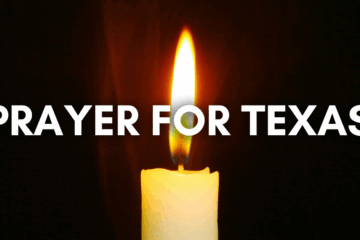Saint Theophan the Recluse
What can we do when the mind wanders here and there and we can’t gather it in prayer? If we’re alone, at home, we can delay the start of prayers, or, if we’ve already started, take a short break. If, after a little while, the mind doesn’t cooperate with our intention, then we have no choice but to force it to do so, whether it wants to or not, to the extent that this is possible, of course. And there are times in church when we don’t hear or don’t understand what’s being sung, read or recited. At times like this, stand before the Lord in your mind and devote yourself to the Jesus prayer.
But you should know that, whenever a service is being held in church, especially the divine liturgy, every act of worship, every movement is of significance. So those who know and understand the significance of every facet of the ceremony participate in the congregation of the faithful with awareness, and nourish their soul with the heavenly manna which is served in abundance at the spiritual feasts of church services.
The night, in particular the hours after midnight, is the best time for prayer. How many prostrations should you make while saying the prayer? As many as you like, great or small, depending on your bodily strength and spiritual disposition. But it’s good to set a basic number of prostrations for each day and to keep to a strict schedule.
It’s not necessary to be standing when you read the Gospel. You understand it better if you’re sitting down, because you don’t get tired and your attention can remain focused on the sacred text without being distracted from your devotions. As regards the psalms, read as many as you can and as you want. One, two, three or more. You can take communion frequently, so long as you’re properly prepared each time.
What does it mean to have a clear conscience as regards material things and objects? It means that we don’t make bad use of things but rather that we put them to good use and look after them as carefully as we can.
Uninterrupted remembrance of God
Do you want your mind not to wander at the time of prayer or during services? Try to remember God every moment of the day, whether you’re by yourself, or with others, at home, at work, on the road, everywhere. In this way at the hour of prayer or at services in church, your mind will be concentrated on him and will commune with him in veneration.
When is your prayer pleasing to God?
Remember that prayer isn’t words and prostrations, but dedication of the mind and heart to God. It’s possible for you to read all the regular services of the day and to perform all the appointed prostrations but for your contact with God to be either entirely non-existent or insignificant, with your thoughts scattered and your heart cold. In this way, you carry out your rule, but you’re not praying. Such prayer is unseemly. God preserve us.
We must perform the works of God with fear and trembling- always remember that. In every way, and with all your strength, keep the words of the prayer in your mind or, as Saint John the Sinaite says, enclose your mind within the words of the prayer. The moment you start praying, all your attention should be focused on God and you shouldn’t stray from him. Only then can you think you’ve prayed well and, when you finish, your soul will tremble with contrition and self-disparagement. During the course of the day, try to stand mentally before the Lord through unceasing prayer, all the time, as the angels do. They offer ceaseless hymns of glory; let us offer him our repentance.
How is our prayer heard by God?
This is how you should ask something of God: ‘Lord, you see that I need this, that or the other thing, or that I’m suffering some wretched hardship. Help me, as you can and as you wish. Your will be done’. Pray a great deal, with this internal attitude. Not just once, even if you do so for a long time, and not just for one day, but for weeks, months, years. Keep on entreating, keep on shouting: ‘Lord help me. Lord, redeem me. But, still, let your will be done, not mine’. This is precisely what Christ said in Gethsemane when he was praying to his Father. And the widow in the Gospel parable finally found justice from that unjust judge only because she wore him down by entreating him for such a long time. Some wise person once said: ‘You have to become a pain in the neck to God and his saints’.
The power of prayer
The power of prayer lies not in its external form but in its content, in its spirit. Try to live the prayer. That’s exactly what’s required. One of the Fathers says that, when we pray, we should feel like somebody arraigned before a judge. He asked an ascetic how he should stand in prayer, and received the answer: ‘Stand as if you’re in the witness-box, with your eyes fixed on the lips of the Lord, who in the very next moment- this is what you should believe- will deliver the final verdict on you. Either “Come to me”, or “Go away from me”. And you should cry aloud “Lord, have mercy”’.
I also think that the Jesus prayer’s the best and most powerful prayer in every situation, though we mustn’t say it mechanically, without feeling, but with the involvement of both the mind and the heart.
Source: pemptousia.com




0 Comments